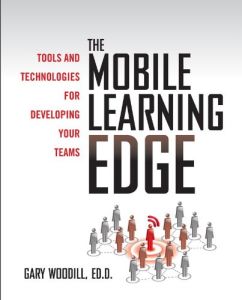Join getAbstract to access the summary!

Join getAbstract to access the summary!
Gary Woodill
The Mobile Learning Edge
Tools and Technologies for Developing Your Teams
McGraw-Hill, 2010
What's inside?
“Mobile learning is not the same as e-learning.”
Recommendation
Gary Woodill, a mobile learning expert, presents a strong case explaining why organizations should embrace the new technology of mobile learning. His guide is filled with information, strategies, hard and soft resources, innovative ideas and case studies. It outlines a new learning landscape featuring participant freedom, virtual worlds, gaming, collective communication and self-generated curricula. Woodill stresses that mobile learning is in its infancy and its effectiveness remains limited. You may see his concepts as the latest sci-fi, pie in the sky – or as the tip of a wedge that sunders corporate education and ushers in methods of learning that today’s trainers can scarcely imagine. With billions of mobile phones in use worldwide, getAbstract thinks this book merits a careful read by managers, trainers, HR and IT professionals, futurists and educators of all stripes.
Summary
About the Author
Gary Woodill is an analyst of emerging technology. He is the co-author of Training and Collaboration with Virtual Worlds.
















Comment on this summary